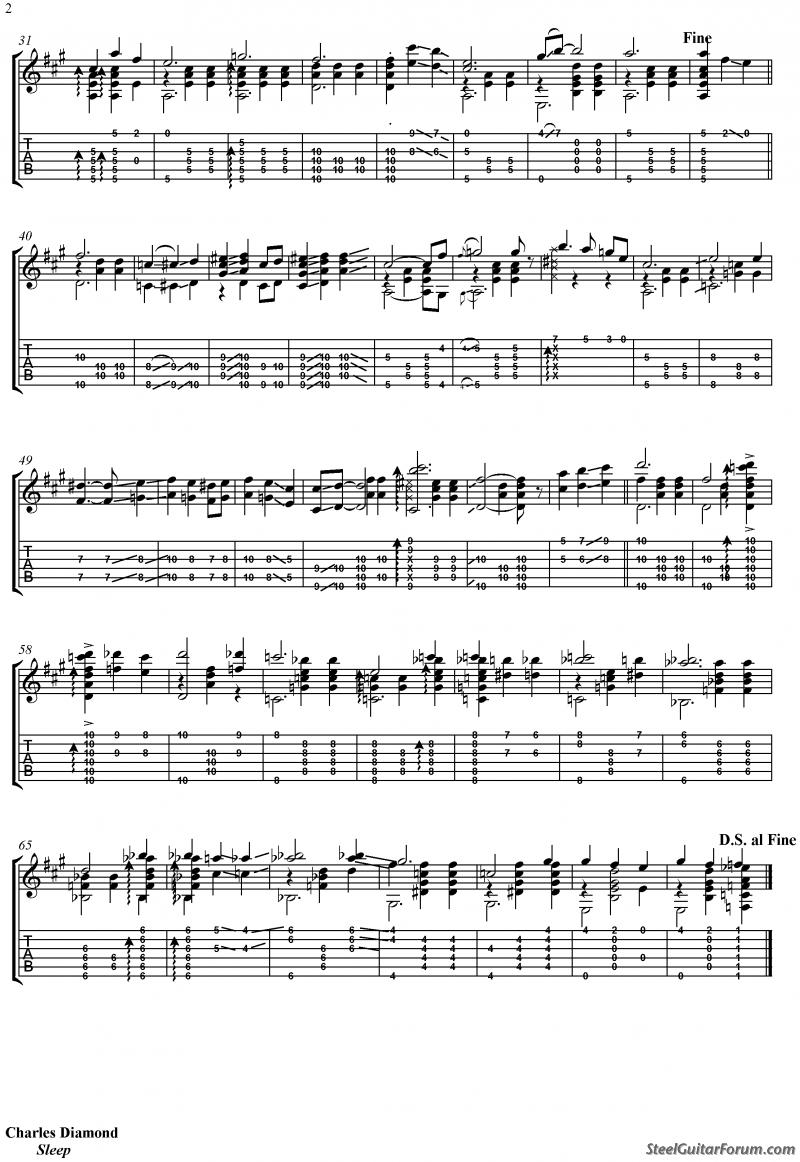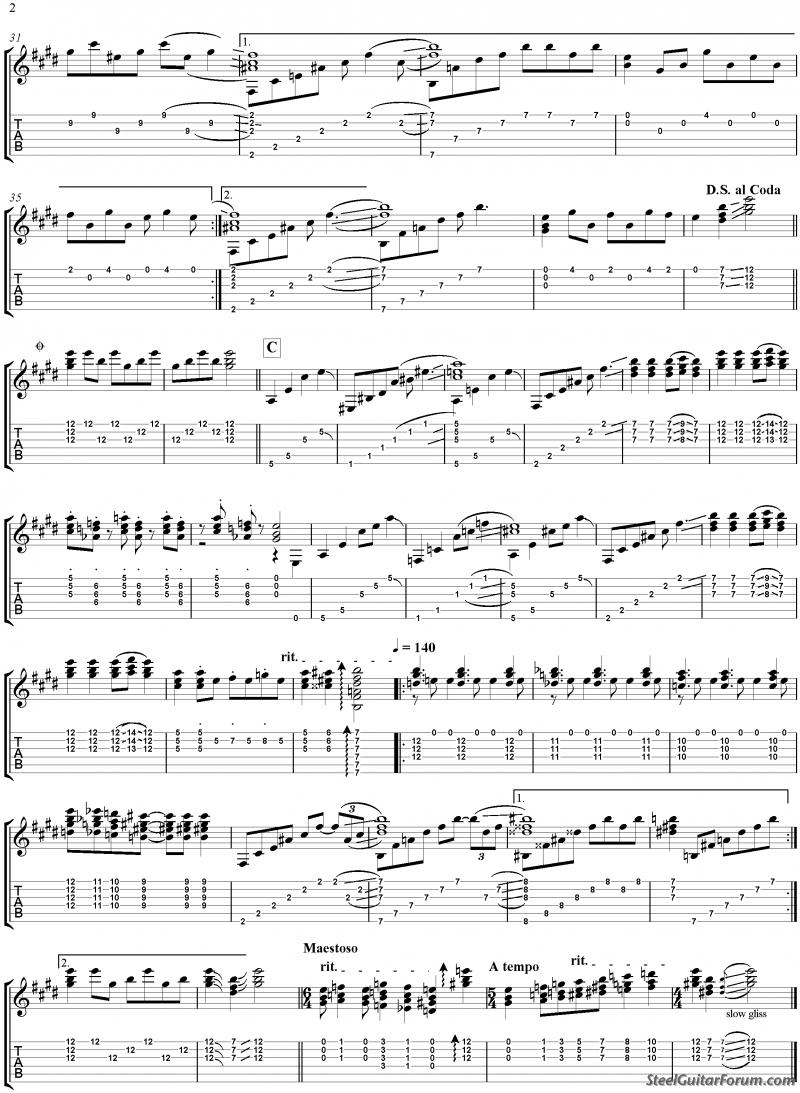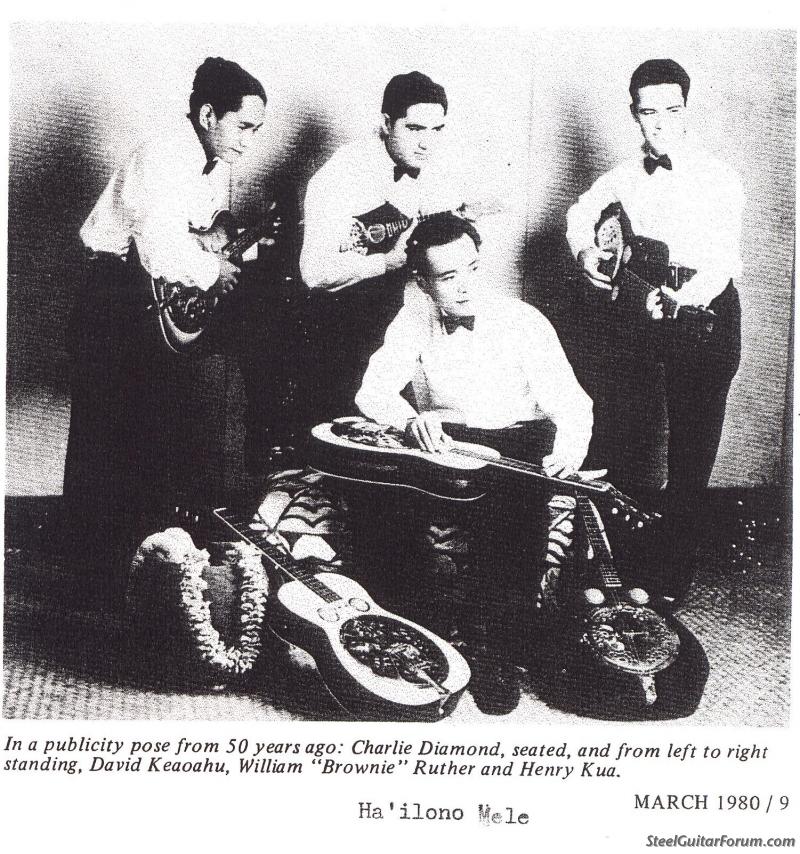The tuning is E B E G# D E (low to high) and is reached by raising the 2nd string of an E major tuning a minor 3rd (B to D). The tuning is also easy to reach from Dobro G, Low or high A tunings. The sound is quite distinctive with its dominant 7th sonority and the major second interval on top.
I first found this tuning in Sleep by Charles Diamond, recorded in 1925, which was included on Grass Skirt’s “Sol in Hollywood†CD. A transcription appears below.
Another instance can be found in Wong Wong Blues recorded by Prince Wong (George Ah Louis) in NY in January 1926. http://www.youtube.com/watch?v=_TCnT4Zp_uc
A third example is Hula Mama Blues recorded by the Kaai Serenaders in Chicago in October 1926. Sadly, this recording has not yet been rereleased. Only two recordings by this group are known and only one, not employing the tuning, is included on the Arhoolie Hawaiian Steel Guitar Classics album.
In reaching this tuning you pass through Sol’s C#m tuning and so it could be argued that it was a predecessor of C#m or the missing link, if you will. I don’t think that is the case as I have been unable to find any instance of Sol employing this tuning before he revealed C#m in 1934. Also, I think it relevant how little Sol employed (or had need to employ) the more common E7 tuning of E B D G# B E.
I would be interested to know if there have been any other sightings of this interesting tuning in 1920s recordings.




